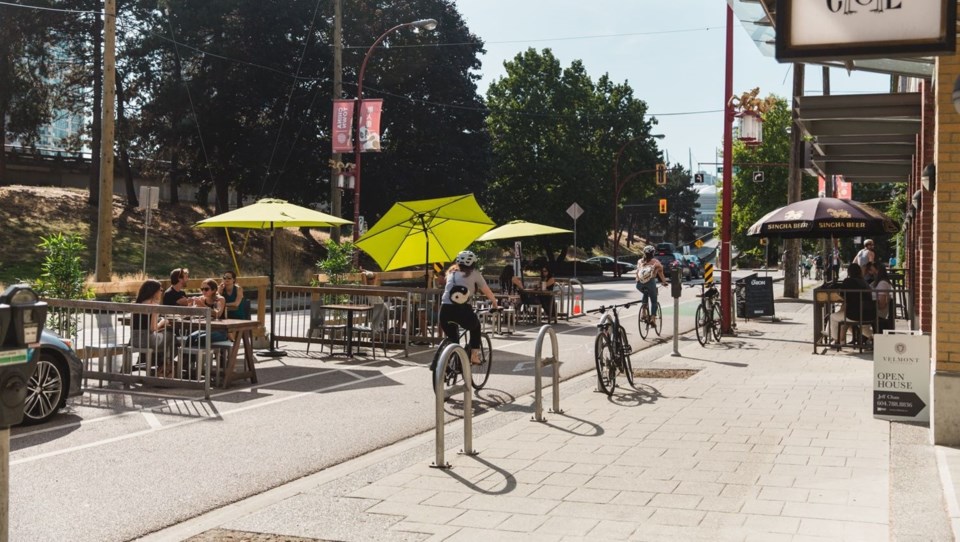The City of Vancouver today loosened rules for what restaurant owners need to do to open summer patios.
This follows a backlash from restaurant owners and industry group representatives, who blasted rules that the city released March 2.
The industry had expected some changes to the process for how to get permits for patios because the city's previous Temporary Expedited Patio Program (TEPP) included the word "temporary," and it provided no revenue to the city because the patios were free.
Coun. Sarah Kirby-Yung, told BIV that she supported continuing the free program for another year, and that she was shocked by the complexity of the new program that city staff had devised.
"There was a big disconnect for me between the vision of keeping a flexible, fun, patio program, and the complexity of the guidelines," she said.
Restaurant owners on March 2 were hit with news that they needed to follow a 34-page guide that formalized the new Summer Patio Program.
Some entrepreneurs estimated that having a patio this year would cost around $5,000, and involve much wasted time dealing with architects and city representatives – the result being that patios would not be viable.
BC Restaurant and Foodservices Association CEO Ian Tostenson called the city "tone deaf" for releasing the new rules.
Tostenson's own tone has changed dramatically since early March. He told BIV today that city staff have been "perfect to work with," as they incorporated new ways to streamline requirements.
"I was mad," he said of his stance in early March. "We were headed for having no patios. That's basically where that was headed."
Changes announced today eliminate the need for some restaurant owners to draft new interior drawings of their sites. No restaurant owner now needs to hire architects to produce drawings, whereas the rules released on March 2 required that drawings be done by architects.
Businesses that have a TEPP permit, and are not changing occupancy, now only need to submit the same drawings that they sent in their original TEPP application.
Businesses applying for the first time for a permit, or are wanting to change their patios from last year, may submit accurate scaled drawings, done either by hand or on a computer, the city said.
Previous complicated rules said restaurant owners could shift 20% of their indoor seats to patios, plus an extra 12 seats if they had two patios. New rules say businesses may transfer up to 50 per cent of their existing capacity from indoors to patios.
The city today said curbside patios may extend across up to one neighbouring business frontage. The rules released on March 2 said patios had to be limited to the frontage outside the restaurants, and not that of any neighbouring businesses.
For restaurant owners, dealing with the city is only part of the process to getting patios. They also must deal with the B.C. government in order for their patios to be licensed.
During the pandemic, the B.C. government streamlined licensed-patio approvals, and essentially rubber stamped free applications.
The new provincial process involves a $400 fee, submitted floor plans, proof of complying with local government bylaws and a potential 10-month wait for applications to be approved, according to BC Liberal critic for jobs and economic recovery, Todd Stone.
"Instead of making the patios permanent, the NDP wants to axe them right before the busy summer season," he said. "What is [B.C. Premier] John Horgan thinking?”
Tostenson agreed that the province's new process for approvals is more onerous than it need be, but he said he holds out hope that the B.C. government will follow Vancouver's example and be flexible and willing to change its rules.
The province approved patio space at more than 2,000 establishments during the pandemic with Temporary Expanded Service Area (TESA) authorizations, which were free and easy to apply for online.
"The temporary patios are good until June 1," he said. "There is time for the government to change its process." •



